W4 interviews Hena Gul, Administrative and Human Resources Manager of W4’s field partner, SAWERA, about her team’s groundbreaking work for the empowerment of women and girls in Pakistan.
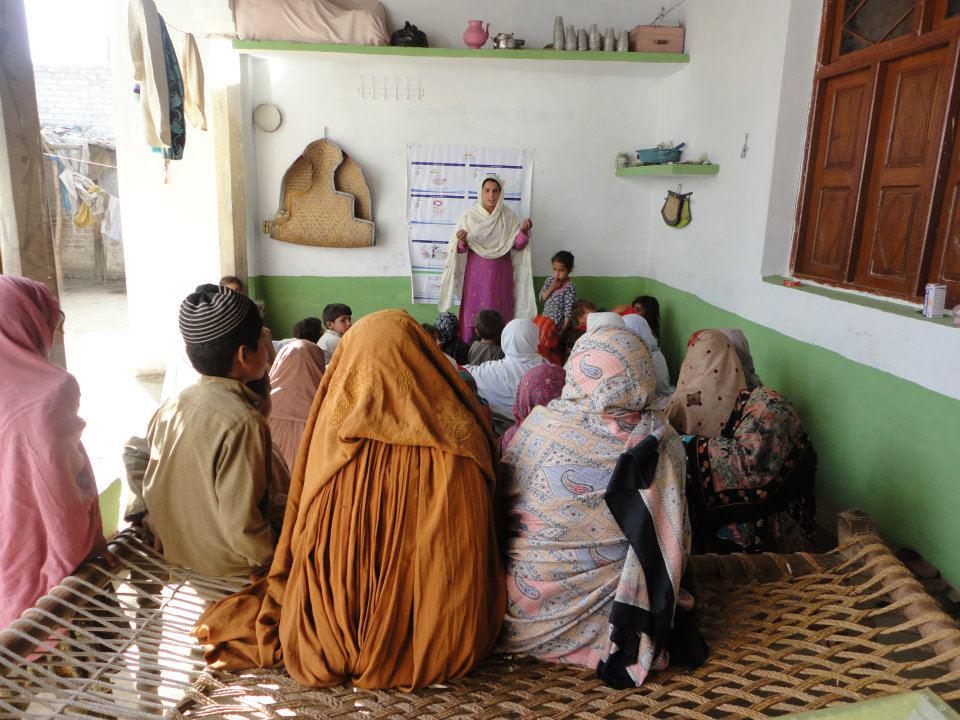
SAWERA — the Society for Appraisal & Women’s Empowerment In Rural Areas — is a female-led organization, working in Federally Administered Tribal Areas (FATA) of Pakistan. They focus on women’s empowerment and promote gender equality by creating awareness about women’s political, economic and social rights.
Discover SAWERA’s latest project, to give women in Pakistan’s tribal regions access to IT training!
How is SAWERA working to increase the social, economic and political participation of women in the Federally Administrated Tribal Areas? Please tell us about some of your programs.
Since its inception, SAWERA has made many successful interventions in the FATA and Khyber Pakhtunkhwa (KPK) regions, where women are not allowed to leave their homes for education or jobs and are excluded from social events and decision making. We have implemented programs to improve the living standards of women through literacy promotion, educational scholarships, information technologies, livelihood restoration, voter registration and peace-related activities. We’ve helped to form mobile women’s services (MWS) and male and female community-based organizations (CBOs) in different areas to discuss the best ways to meet the needs of women.
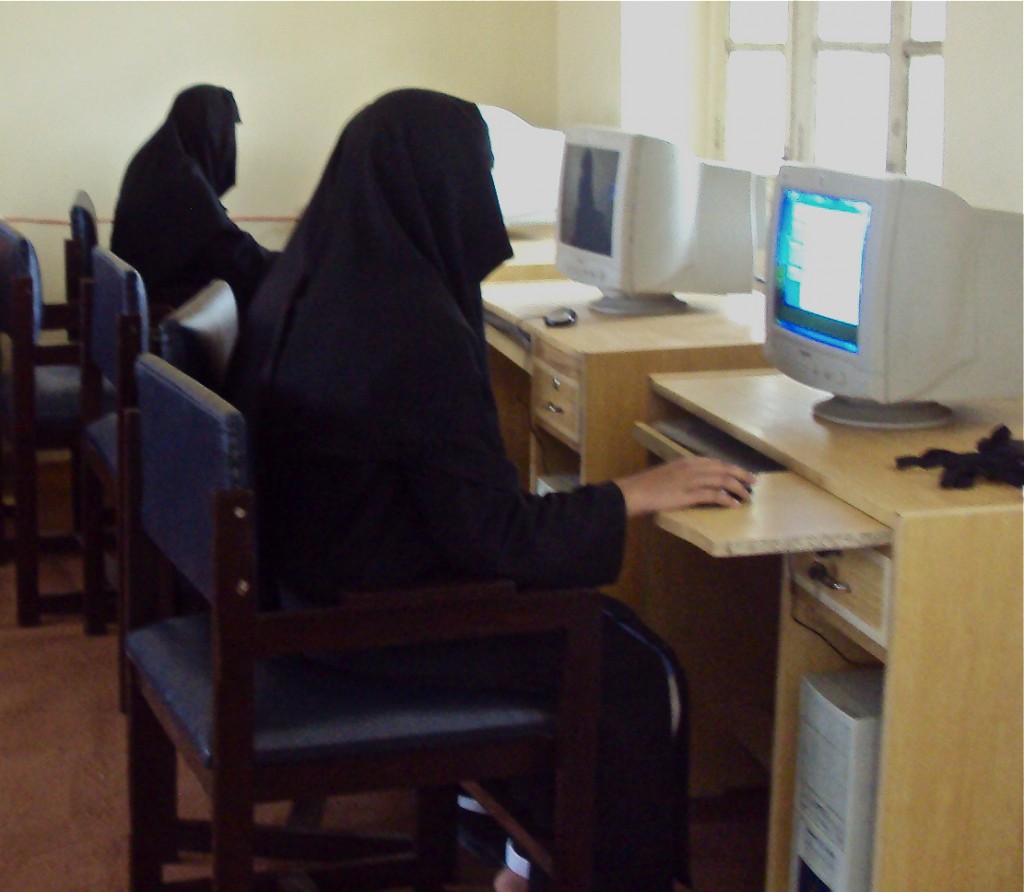 |
SAWERA set a historical first by establishing IT centers in FATA and by involving women and girls in security mapping and peace-building initiatives. We formed Women Protection Groups to protect women from violence and harassment and to engage them in peace-building. These groups identify unsafe locations and inform the government authorities so that they can provide support and security to women there.
With the financial support of Garden of Hope Foundation, we implemented a one-month project in the Mohmand and Khyber Agency districts of the FATA, which engaged school children in peace-building activities and enabled them to take practical steps to ensure peace at the grassroots level. The activities encouraged tolerance and leadership among students and taught them conflict-resolution skills. This is important because these children are our future leaders. With the financial support of Women’s Worldwide Web (W4), SAWERA also provides educational scholarships to create bright futures for students.
We have also been active during emergencies. During the 2010 flood, SAWERA implemented water supply and sanitation projects in the Charsadda district of KPK. For two years after that, with the financial assistance of CARE International, SAWERA successfully engaged in “Integrated Humanitarian Assistance for flood-affected populations towards livelihood restoration,” WASH (water, sanitation and hygiene) programs, disaster risk reduction (DRR) and efforts to meet early recovery needs in the same region. SAWERA involved women in all of these activities and provided training in modern agricultural techniques to allow the women to become financially strong and independent. We also made cash-based interventions, providing conditional cash grants and cash for work. This meant that we not only addressed the immediate needs of the most vulnerable internally displaced people, but also their host communities, both men and women.
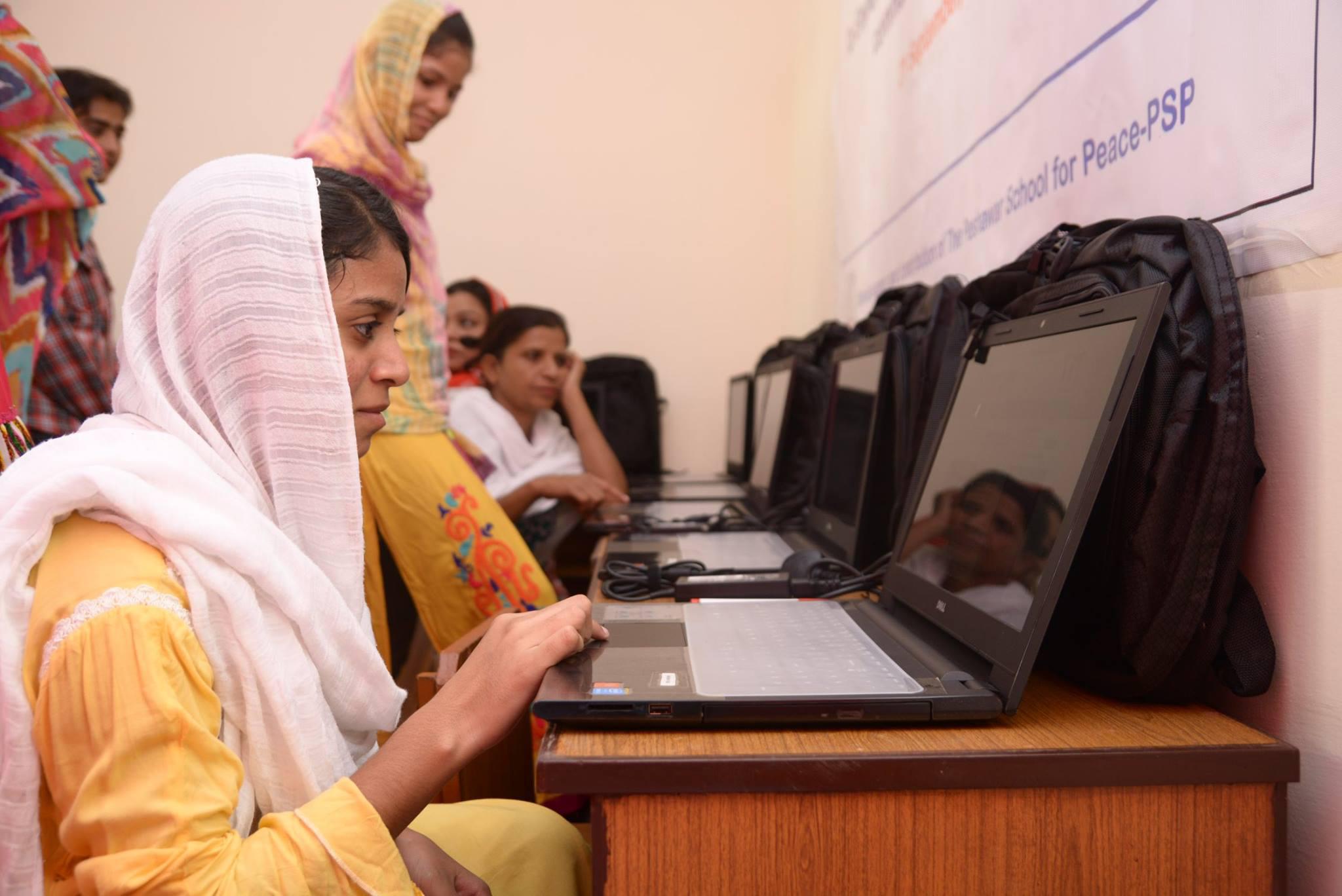
What first inspired you to work on women’s empowerment in Pakistan?
Women are recognized as a marginalized and vulnerable community in Pakistan. Since my childhood, I have observed and experienced discrimination between girls and boys. My parents endured discrimination, especially my mother, for giving birth only to daughters. She was always treated like a servant by our relatives. I cannot forget my mother’s tears as she sat in the corner of a room and cried, praying to God for a son.
In our society women are just caretakers of their homes, husbands, kids and relatives. They have no right to live according to their own freedom and desires. Women need the permission of men just to breathe in this male-dominated society. Imagine the challenge of trying to achieve literacy, gain access to employment opportunities at all levels in the economy, establish a public voice.
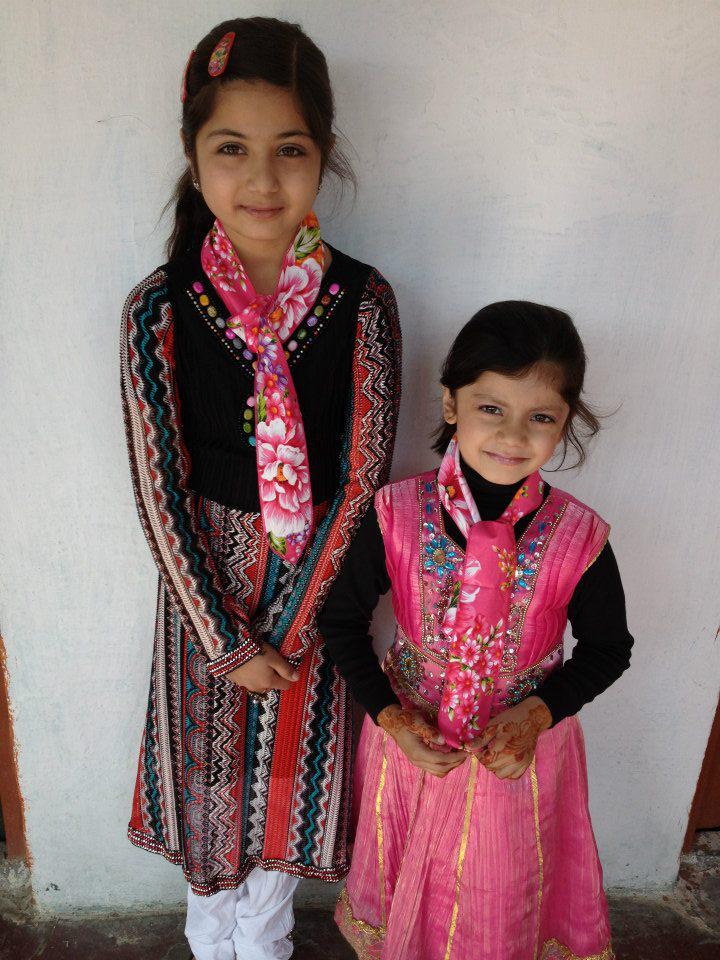 |
As I grew up, I came to realize that we need to change the perception of women’s roles and status. I decided that, once I had finished my education, I would work for women’s empowerment. I would support my parents just as a son is traditionally expected to, and support my sisters like a brother. I held this ambition for women’s empowerment in my heart and made an oath to myself that I would always work for women’s basic rights and raise my voice to promote them. I decided that I would work to promote female education above all, because education is a basic right and an educated female can create a better future for all generations.
A huge inspiration for me was books: I felt respect and admiration for the great minds of the women that I read about in books; I was struck by the fact that women could do so much, just as much as men, if not more. This gave me a great sense of satisfaction. During my school years, I helped girls who were very poor and could not afford to support their education. I formed a group of 6 girls in my school and we used our pocket money and collected donations from wealthy families to provide poorer girls with admission, uniforms and exam fees. I also learned that the most rewarding achievements are often those that entail many failures before finding success. I was from a rural, middle class family and I have six sisters and no brother, so we always faced discrimination, even among our extended family. My mother suffered a lot. Our relatives were set against our education and employment, but this helped inspire me to decide that when I grew up I would enable women to raise their voices for their basic rights and provide them with an education. After I finished school, I began teaching poor girls in my home. I could not open a school or an organization because I had no support except my parents, but I could not lose hope or courage.
With the support of W4 I was successful in taking the first step towards my ultimate goal. I gave an educational scholarship to a poor girl in my village who wanted to become a teacher. Before that, owing to the size of her family and their very weak financial situation, her family could not afford her school fees — they had times when they could not even afford a proper meal.
What is your view of the role of Pakistani men in achieving positive social change and economic and political freedoms for women? What are the best ways to engage them?
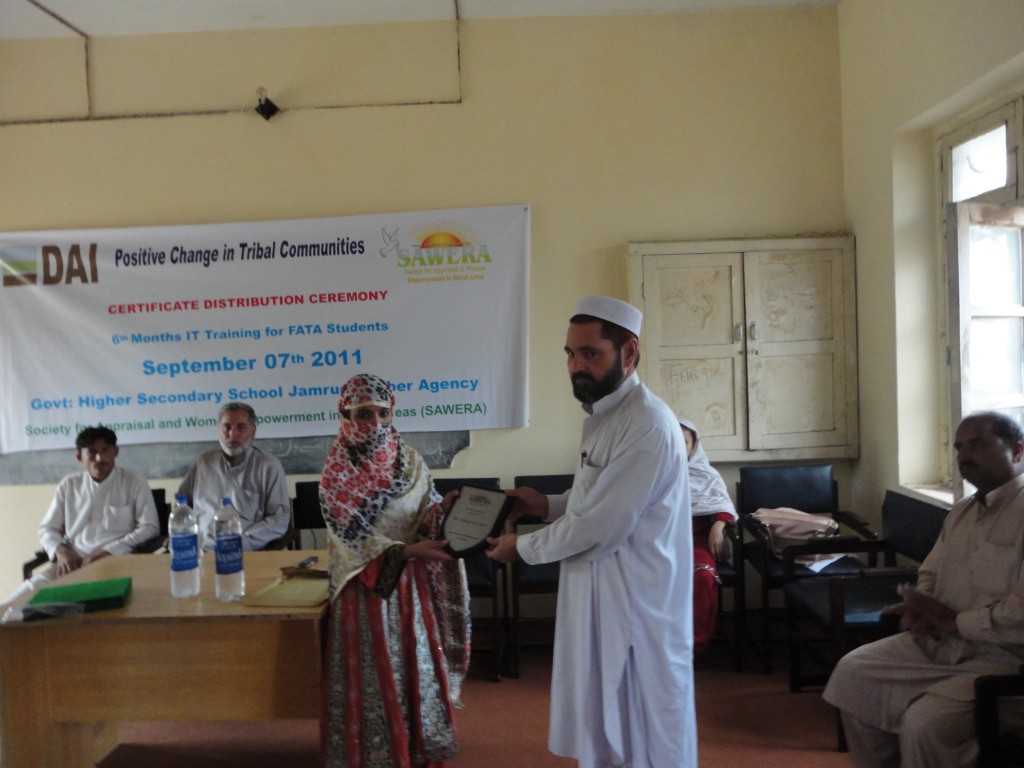
This question is hard. Some people say that men can’t be feminists and some say that men are playing a great role in women’s empowerment. Many men are playing a vital role in women’s empowerment — for instance, my father really supports my sisters and me in our education and employment. I recognize that contradictions exit, but, broadly speaking, as long as men stand in the way of women, it is difficult to see how women can achieve what they need to. I believe that women can do a lot by themselves but, in our male-dominated society, people think that women need men and the power of decision making and control over money still lies with men. To make gender roles and relations more equal, we need to make changes in society, culture, religion, politics and economics. Men cannot be separate from these processes. Men need to be involved in gender equality and feminism. Men should:
- allow the women in their lives to be educated, find employment and participate in decision making;
- educate women about violence and their basic rights;
- develop strategies to protect women against violence;
- give women the opportunity to develop and respect their ideas and opinions.
Pakistan’s culture tends to deter women and girls from accessing education; does SAWERA offer programs that include men and boys as crucial stakeholders in achieving social equality?
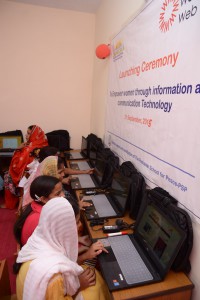 |
SAWERA has implemented a wide range of inclusive programs since its inception in 2004. For example, SAWERA’s Information Technology (IT) centers in FATA are for both men and women. Students gain key skills and some of them have found jobs in the government or private sector, which has helped them to become financially secure.
Another example is our peace-related activities in schools. These involve men, women and children and encourage them to take practical steps together to ensure peace at every level.
Congratulations on receiving this year’s Front Line Defenders Award. What does this award mean to you and your team at SAWERA?
It was a precious moment when I found out about SAWERA being selected for the Front Line Defenders Award. The team has faced so many challenges and threats, yet we still continue with our efforts and strive for women’s rights. This award reminds me that we are on the right path and are doing great work. I feel proud to be a part of SAWERA and I salute the team for their great work.
I am thankful to Front Line Defender and to all those who voted for SAWERA. The award gave us an opportunity to present our organization to a global audience and it has expanded our communication at national and international levels. It has also given everyone at SAWERA the courage to keep up their struggle for the empowerment and protection of women and their rights.
What do you think of Malala Yousafzai’s work to lobby for the rights of Pakistani girls and women? How do people in Pakistan view Malala and what happened to her?
It was one of the most ruthless attacks of our time: three Pakistani schoolgirls were on their way home when the Taliban shot them. Their only crime was trying to get an education and to promote education for others. Malala Yousafzai was shot in the head and two other young women sustained injuries to their arms. “We are all Malala,” the world roared. Protestors marched and held candlelit vigils while Malala was nominated for a Nobel Peace Prize and became an iconic symbol for young women’s struggles for education.
Everyone is talking about Malala, but I am shocked that there is no voice for the two other girls, Shazia Ramzan and Kainat Riaz. Who are these two girls? National and international media gave Malala a voice, but the other two daughters of the nation have been ignored.
And what is the impact of all the publicity in Pakistan? Where is the progress? I have not personally seen any progress. In 2013, a 5-year-old girl was gang raped by four people in Lahore and nobody said a word. Isn’t it shocking? But: where is the media? Why have they not highlighted this and other similar situations? Where is the government?
Given the highly insecure environment in which you work, what motivates you to continue fighting for women’s and girls’ rights?
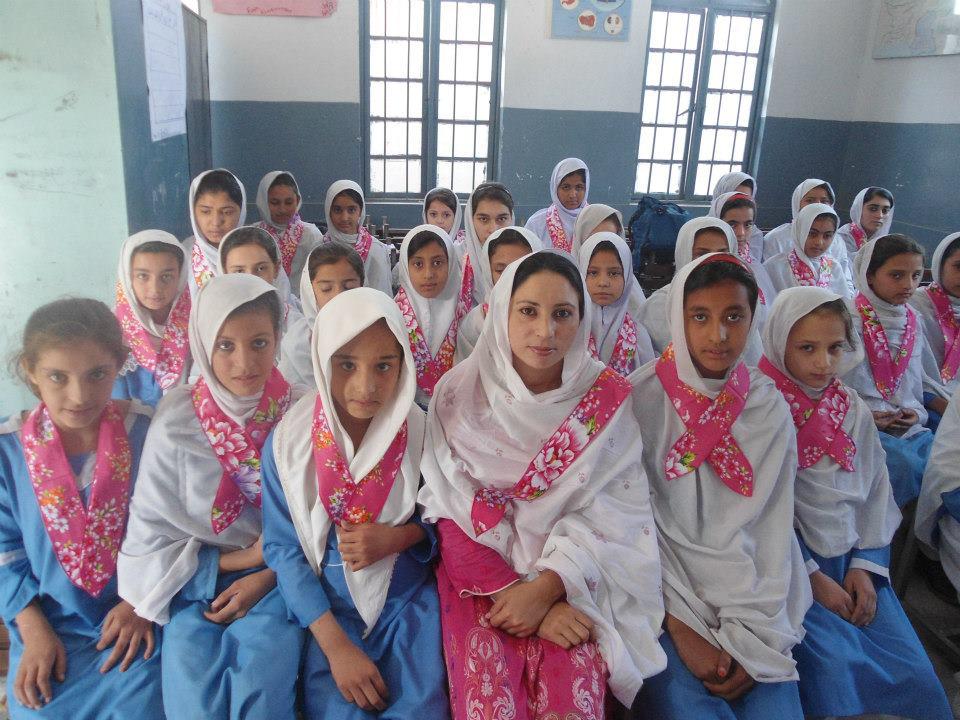
All the women who raise their voices for justice, equality and their own basic rights inspire me. Education is uncommon in Pakistan: poor people cannot afford education for their children and those who can afford it send only their sons. They believe there is no need for female education because females get married and then just take care of their homes, husbands and kids. Here, females are ignored and excluded from society. I decided to support women’s empowerment through education, because education is the key to success. As a universal human right across the globe, education plays an important role in developing human capital in any society and it is important for both girls and boys.
These basic facts really motivate me to work for women’s empowerment. Women have the potential to do better, not just in their own lives but also as leaders and role models for others. I believe that women can change the world and have a vital role to play in the sustainable development of every field. Women are the main victims of worldwide poverty and violence. But if we create opportunities for women, women can achieve their potential, which will have a positive effect on the economy, in addition to promoting gender equality and peace.
How can individuals and the international community further support your work?
SAWERA is a female-led, grassroots organization with limited resources and we do not have enough funds to provide financial support to the broader affected population. We would like to link up with national and international organizations and participate in humanitarian networks that can support us. Organizations as well as individuals can provide financial resources, share news of our work and offer us opportunities for exposure at national and international levels. We would also welcome assistance in the creation of a rest-and-respite program and other fellowship opportunities for the SAWERA staff, who have been under severe stress due to our recent critical circumstances and challenges.
We are trying to change the world for children, and for women and girls, by recognizing their rights. We are helping girls and women to solve their problems using their own strengths and capabilities. In this endeavour, we really need support from international donors and networks. We want to make our dreams of women’s empowerment a reality.
Read more about and support SAWERA in their work to provide women in Pakistan’s tribal regions with access to IT training here!














1 Comment
i appreciate you Hena Gul.